How the BANKING SYSTEM discredit CAPITALISM - Kill the FED - How to solve the banking system.
The other day I was watching for the 6th time the film of "The Big Short" one of the best films of the whole 21st century in my personal opinion, if you haven't seen it, I recommend you to go and see it right now. This film is about the financial crisis of 2008, and the great role that banks played in it. The truth is that at the time of the crisis the government was at a crossroads whether to save the banks and those that created the problem because of their ambition and greediness or to save the people. We already know who the government ended up saving. So, what happened? That all the people turned their heads and looked at the government and began to discredit capitalism.
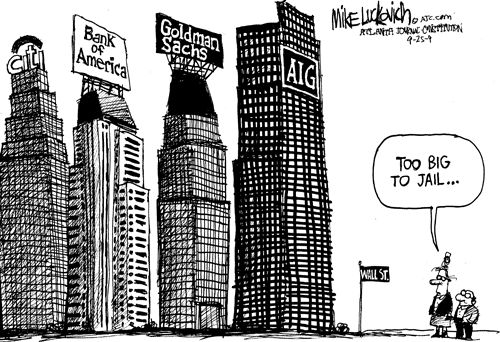
Source

The culprits in the 2008 crisis were undoubtedly the banks and WallStreet, that speculated on real estate prices by granting unsecured bonds to people who were unable to pay them without government consent. The unfortunate part of this bankers' crisis was when the U.S. government made the decision to refinance the banks that had lost all their money in the crisis, thus losing all the savers' money, the terrible part of this was that the government made the decision to save the banks instead of their own people, using taxpayers' money.
After the crisis, governments and politicians, mainly of the left, did not lose the opportunity to attack and blame capitalism, given that the United States is famous for being the father of capitalism, the curious thing is that by then the United States was not even the freest country in the world, it was fifth below countries like Australia, Singapore, and Ireland.
But what does capitalism really have to do with the crisis? As we said earlier, the banks were to blame for the crisis, so how do they associate banks with capitalism? Central banks and capitalism have no relation whatsoever, central banks are in charge of the regulations and controls of the state's monetary policies, they are the ones who centralize power over interest rates. On the other hand, Capitalism is based on the doctrines of laissez-faire, laissez-passer, this doctrine is characterized by abstention or interference with the individual freedom of citizens; a doctrine that opposes government interference in economic affairs and if there are regulations it is to guarantee the individual rights of individuals and property rights. The purpose of this is to create a totally free, pure, uncontrolled and unregulated free market economy. The socialists are the ones who really advocate interventionism in the market with regulations and controls, so the banks are institutions of a more socialist and communist nature than really capitalist ones.
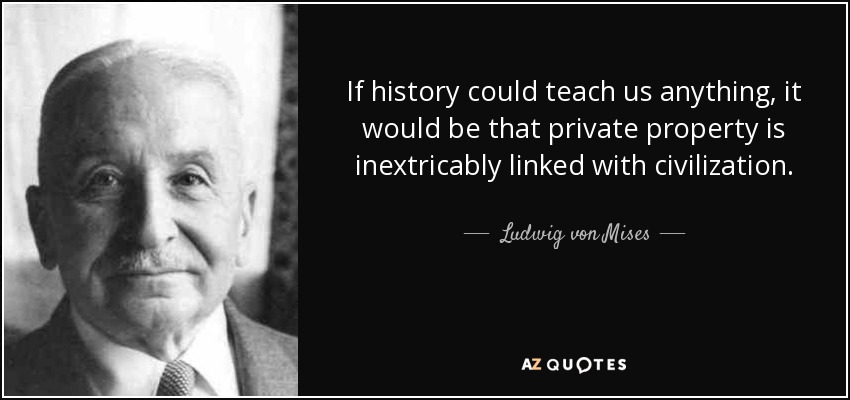
Source
In addition, we must add that central banks are artificial monopolies created by the government to regulate and control the financial sector of a country, controlling everything from the monetary settlement to the interests of a country.

Central banks such as England's or the Federal Reserve itself are national banking systems that have an exclusive monopoly on the issuance of debt securities in their countries' currencies in paper and electronic form.
One of the most frequent criticisms against the free market or capitalism is that they encourage the creation of monopolies, and therefore state interference is necessary to prevent them from being created. This is completely untrue. The capitalist system disapprove, de facto, monopolies because it is inherent in capitalism to promote free competition, you cannot have capitalism without competition.
Monopolies are artificial creations that obtain legal privileges and hinder free competition; a single institution or corporation is the only one capable of providing a certain good or service, in other words, the monopolization of the market by a single competitor.
Any serious economist recognizes that in an environment of free competition, with few state regulations, no special concessions and a well-defined and reasonably low tax rate for entrepreneurs, it is almost impossible to establish monopolies.
The results and the economy have demonstrated through empirical results that it is not the free market that produces monopolies but the absence of this (through taxes and state regulations) that generates them and makes their eventual disappearance more difficult.
As an instance, we have the break-up of the State-taxist monopoly represented by the UBER company around the world.
UBER is obviously such a good thing, said entrepreneur Paul Graham, "that you can measure how corrupt cities are by the extent to which they try to suppress it".
Now back to the central banks, let's focus specifically on the Federal Reserve, the main agent.

After the American Revolution, the first United States Secretary of the Treasury did not have enough money to pay back the war debts. So he implemented a strategy called fractional reserve banking, to keep a fraction of the deposits made by customers in cash so that the rest can be used for loans to other agencies. In 1791, Hamilton established the First Bank of the United States of America, a private bank that would print gold-backed on notes for lending to the government gys However, it was only the beginning of a system financed by the debt of private bankers, who contributed only nominally "backed" notes in gold.
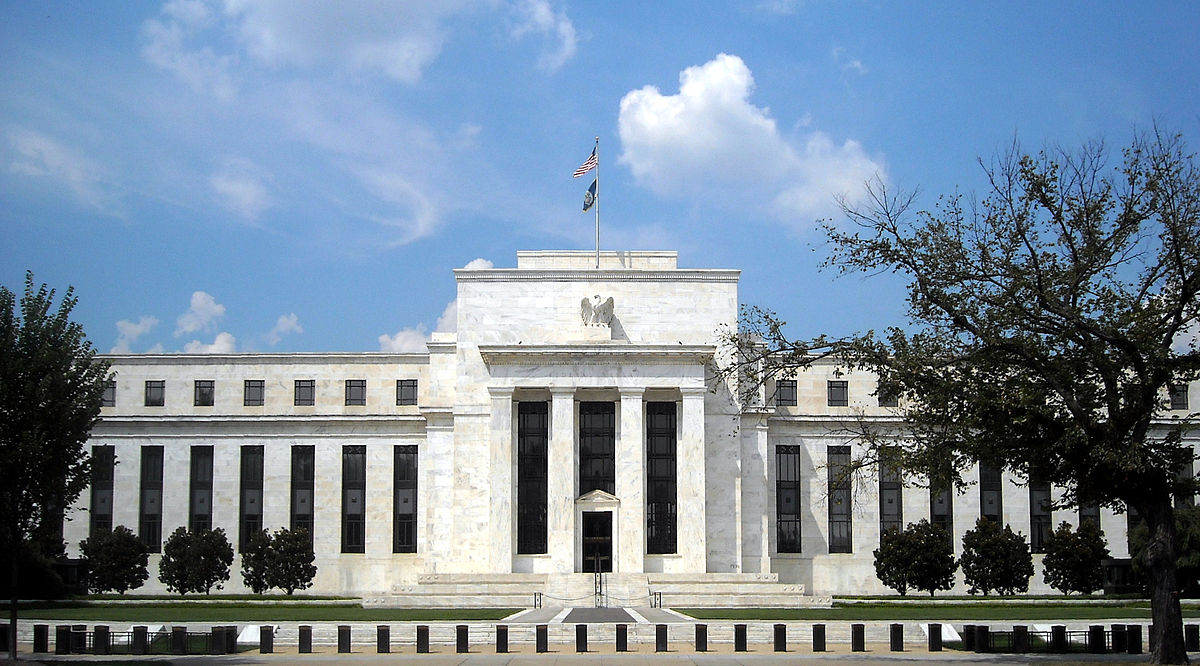
Source
In the next 20 years, the big private banks would be in charge of doing their own thing to benefit economically, how did they do it? During the period of monetary expansion, all people were in debt, and when they could not pay themselves, much of the capital was used to pay usurious interest, banks expropriated the profits of the real economy for nothing.
It wasn't until Andrew Jackson, who in 1835, canceled all U.S. debt by that time. Even so, it was not enough, because the fractional reserve banking would continue to work at full capacity. Therefore, the issuance and creation of money would continue to be controlled by the banks, leading to economic depressions that would end up being triggers in the secession war.
During the Civil War, 1861-1865, President Lincoln would, in order to avoid an overwhelming war debt, return to the monetary system of money issued by the government. It issued U.S. Treasury bills called Greenbacks in order to avoid borrowing money with usurious interest rates. However, after winning the war, Lincoln was killed, and the Greenbacks broadcast stopped.
The second American president who wanted to follow in Lincoln's footsteps and issue his own monetary system without resorting to private banking was James A. Garfield, who was also assassinated. Do you know who was the third in the line of murders? Of course, John F. Kennedy, from here you could get a very solid answer to the famous question, Who killed Kennedy? In 1961 JFK would pass a law that would allow the US government to print its own money outside the control of the FED and other private banks. Once JFK was dead, the law was repealed. Coincidence? I don't think so.
Since 1913, economic crises and collapses have occurred deliberately caused by the banking system with the aim of creating a central bank, and so the private FED was created, which was authorized to issue its own banknotes deliberately as a national currency. The Federal Reserve was created with the purpose of preventing these bank failures, but it ended up being just the opposite, economic cycles were created manipulated by it. Twenty years after the creation of the largest monopoly in the United States, the Fed would see the biggest banking failure in human history, "The Great Depression". And two more crises in the future.
So, in fact, the answer to the question in the article is:
No, capitalism and central banks have nothing to do with it at all.
We need to reform the global monetary system, otherwise, society will collapse, because we depend on limited resources that will not last forever.
The complexity of our financial system is hidden under a mask that hides how deceived our society is, a society that has been cognitively manipulated through its educational system. Don't you believe me? Here are three simple questions.
✅ Why don't education systems teach us how to think, but rather, what to think about?
✅ Why are we not taught finances and subjects related to economics and politics in our education system?
✅ Why do they want to regulate information on the Internet so much?
A totally manipulated society where massive control is exercised to perpetuate the interests of a few who want to dominate the world.

To begin with, we need to give back to the state the power to imitate money without debt and to create an interest rate that is related to public spending. With this, taxes that unjustly damage work and consumption will be eliminated, and thus the real economy of work will be financed.
In particular, the principle of fractional banking must be banned and the reserves of public and private banks must be increased to maximum capacity. This is in order to avoid fraudulent loans based on promissory notes in exchange for fictitious credit granted for money you do not have. These loans based on promissory notes are one of the factors of inflation, a hidden tax on the population, which ends up diminishing the purchasing power of society when price rises occur, manipulated, of course, by the banks.
Public banking could also be used to displace and replace the current private financial system, but the main thing would be to ensure the flow of credit and prevent the creation of oligopolies and monopolies.
One could follow the example of public banking systems such as those in Australia, New Zealand, Germany, and Switzerland.
These would be the prudent measures to escape the debt we have been dragging down by the world's bankers for centuries.
The predominant economic system of the world is Capitalism and it has proved itself and our whole society is witnessing that it is, but it still carries with it evils such as the Bank-Cryptocracy, which expropriates all the nation's wealth. By introducing some better changes the economy will no longer depend on a system of cyclical growth based on debt that prevents us from moving forward and progressing as a society.
It is no coincidence that the century of total war coincided with the century of central banking- Ron Paul |
|---|
|
|
|---|---|
| Century of Enslavement: The History of The Federal Reserve | |
| Challenges of Modern Capitalism | |
| El falso capitalismo de Hamilton | |
| End the Fed - Ron Paul | |
| "Historical Beginning ... The Federal Reserve" | |
| How to Think About the Federal Reserve - Peter Schiff | |
| Index of Economic Freedom World Rankings 2008 | |
| La Solución de la Banca Pública | |
| Reserva Fraccionaria | |
| Secrets of the Temple: How the Federal Reserve Runs the Country - William Greider | |
| Uber Is Not (And Will Never Be) A Monopoly |



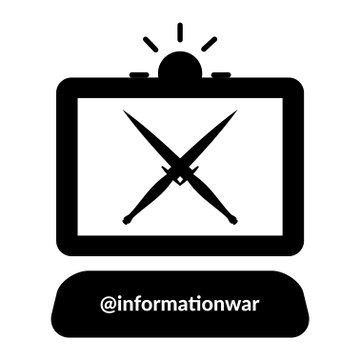




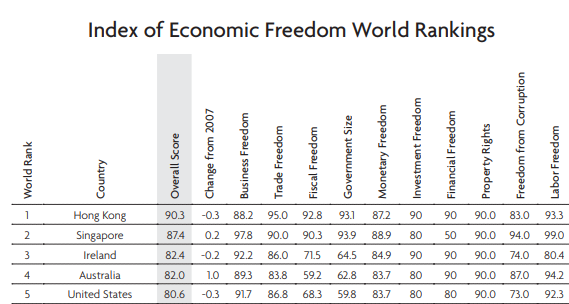
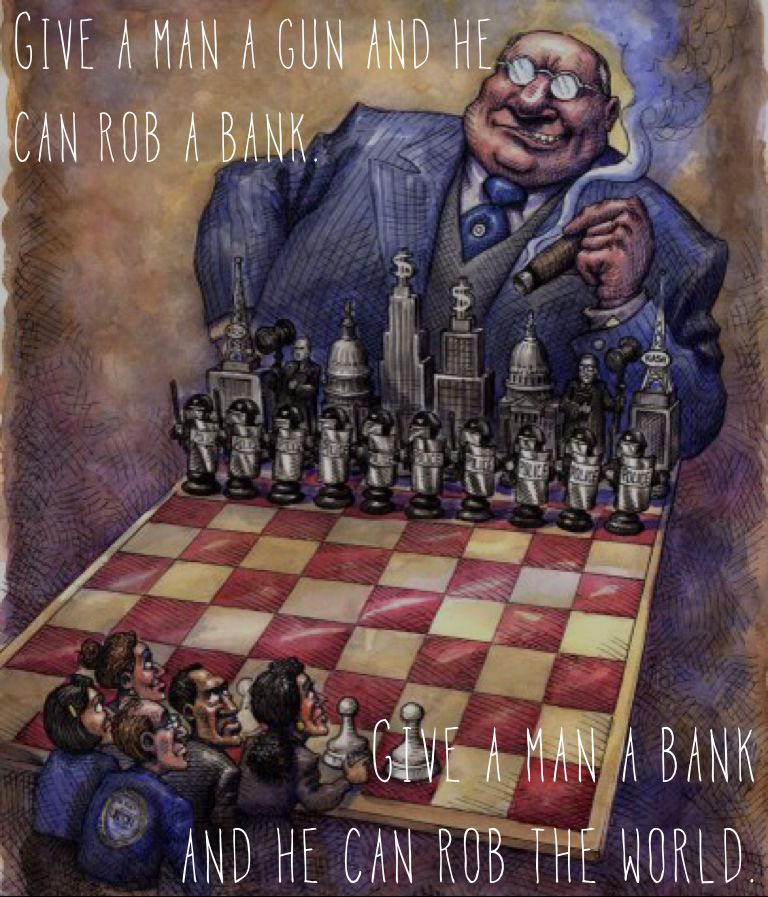

Great article, and a lot to think about...
In Australia we've had a couple of airlines fail... the bigger players would momentarily reduce their prices and take the losses until the new entrants to the market went out of business , and then raised their prices back up again... it was only until Virgin Airlines came in with their massive capital that the monopoly was broken. Same with our grocery stores... there were only two chains for a while, they either bought up or priced out their competition... and again, it was only when Aldi came in did Australians finally get some choice.
I'm sure a lot of your article is accurate, but I'm just not sure that a purely unregulated capitalist society would be fairer, as industry leaders with significant barriers to entry would be be able to bully any newcomers. You can see it with the media in Australia as Rupert Murdoch's company just continually buys up everything.
You can see it with crypto, as companies in China try and mine as much stake as quickly as possible... while lots of people can purchase a mining rig, almost no one can compete with the sheer scale of these miners.
I personally think that regulations are required, but there must be a way for them to be transparent to the public, to protect the public... it's a tricky situation because the public rarely understands the nuances and complexities of the situation.
Again, amazing post and extremely well presented and thought provoking!
Thank you for your comment!
Please, I would be very happy if you would pass me some articles to read about those cases I mentioned about monopolies!
As I said, I was just saying what capitalism is, I am not an anarchist, I believe that regulations and controls are necessary. Like Australia, I think Australia is the best example or let's say the best concrete example for me and what I mean by Free Market.
However, I believe that the less the government governs, the better the economy does. I'm a minarquist, I believe in small government. However, as the article reads, my solution is basically to transfer power to the state to a public bank with 100% of the reserves it does not lend money to when it does not have it. That's a regulation. Nothing is likely to work on the edges.
You need to set regulations to create a platform where everyone can compete against others in fair contexts :)
Curated for #informationwar (by @wakeupnd)
Relevance: Sharing the truth.
did you know all of the feds leading positions since its beginning until today where all jewish?
Yes, the first central bank since its creation was in hand of the Rothchild's Family.
Great article, and the reason why we need to reset this obsolete system and remove globalists out of the equation.
As soon as we can, definitely!
Blockchain has the power the change things man! I'm very hopeful about it.
There are a few great movies on Netflix about this corruption .... Check out “Zeitgeist: The Movie” on Netflix
https://www.netflix.com/title/70106739?s=i&trkid=13630398
Yea one of the best documentaries I have ever seen so far.
Thanks for remind me of this incredible documentary, I have to watch it again, I was too young the first time I saw it.
Thank you so much!
Upvoted from the whaleshares show!
Thank you crystal! Always here! haha
Great post. Agreed that capitalism is usually blamed for our economic flaws but it is private central authorities.
Capitalism is subject to the natural laws of economics, central banking is not.
I also wrote about the technical details of fractional reserve banking and why it should be abolished:
https://steemit.com/finance/@jdh7190/the-true-definition-of-inflation-the-federal-reserve-system
Thanks for your comment! I'll definitely read yours
In reality banking is a consequence of capitalism not the other way round. If there was no capitalism you wouldn't need banks.
Wut. The concept of the banks dates to 2000. A.C in Mesopotamia. What are you talking about my friend?
I'm assuming that you believe capitalism and mercantilism are the same things, In fact, they are not, they are opposing views. I recommend you to go and take a look of what capitalism is... seems you did not even read my post.
And what did these Mesopotamian banks deal with? Capital in some way. Capitalism has been present in humanity's history since the beginning, with all its rights and wrongs. In reality you can say mercantilism, feudalism or whatever, but in the end all of these are the same thing, they have the same goal, to use wealth to create more wealth, not necessarily bad, but eventually it happens that a majority of the wealth ends up in the hands of very few people.
And that's called the Pareto distribution and there's nothing wrong with it. You just said it, you name it, Wealth tends to end up in the hands of few and not only in the Capitalist system, also in the socialist, mercantilist, feudalism. It's the way it is. The Gini index has shown of that, as unequal a society is as better for those who are poor.
Now, what makes capitalism different, in fact, is that companies rely on people's expectations, so it's a win-win situation. You sell something to someone and you satisfy your need. It's not that what you are giving is a loss.
Mercantilism. However, has no intention of being a fair trade situation, it just set a situation where you put all your money in a wheel, handed by greedy people who do not give you anything in return.
That's completely backwards. The GINI index shows that the greater the disparity in wealth in a given region, the greater the violence that society suffers.
Tell that to Chile or China ;)
The GINI index correlates very strongly to societal criminal aggression, on any scale, from global to a single household. Better than 90% correlation, IIRC.
So, while a nation might have outliers of highly disparate financial means, if there is a gradual transition from poor to wealthy, there is less violent crime. Where the transition is sharp and discontinuous, violence is severe.
I've studied neither place, so can't comment on crime rates compared to wealth distribution in those jurisdictions. I do note that China does have political unrest, and spends immense sums of lives and treasure countering it.
You are just taking something and using it for your on purpose, the GINI index represents how the wealth is distributed. It has no relation whatsoever with the crime.
Then we can jump into the poverty and crime relation, and well we can end up concluding that it's true that poverty somehow leads to crime.
However, empirical results have shown that as we produce more capital more people get out of poverty. That's why in the last 300 years we have been making larger progress than what we did in 1700.
You do understand much of how banking, government, and capital function, yet appear to have failed to grasp how collusion can create--and often has--monopolies.
In a sufficiently capital intensive industry, say steel production back in the day, those with sufficient capital to actually create steel mills had no competition. As technology decreased in cost and dispersed more broadly into the population, competition began to arise.
Nonetheless, all that is required to crush competition in such circumstances is for prices to temporarily fall below costs long enough to starve nascent competition. The major producers can collude to do this, and do.
Do catch up!
So you are basically implying that the FED could not be a monopoly because by that time it was the only one that could have the enough capital to create a bank?
How can you corner the market on fiat? Collusion is dependent on the particular market is occurs in, like anything else. Banks are easy to charter. I recall you could charter an investment bank in Nauru for $40k USD.
Steel, or more currently, lithium batteries, are much easier industries to monopolize due to resource limitations, and capital requirements. Lithium may potentiate exactly such a monopoly soon, as sources are localized, and capital can seize those sources relatively easily.
Just by being the only one who is in charge to control the money that is not based on anything?
Yea you could charter a bank but that does not mean that you will be able to control the citizen's life by imposing an evil tax called "inflation" just because you wanted to print money to finance your military actions...
Honestly, I wasn't addressing inflation, but monopoly. I didn't address fractional reserve banking in my original comment on monopoly because it's a vastly different mechanism than any other financial endeavor.
The FED doesn't have a monopoly, despite the wide collusion in financial markets. That's why we're about to go to war with Iran: to get a monopoly.
Regulation, which you said was the cause of monopoly, is just another form of collusion, with the oppressive monopoly wielded by the state used to enforce limitations on the market.
How is the FED not having a monopoly? He's granted with privileges that no other private bank were given to. They have the right so they choose to print money whenever they want, they have the power to control the whole economic system of a country. Is in it a monopoly?
You got SNEKKED!
Because we love your post!!
You Got Snekked is a curation project!
We aim to find good content and share a happy moment and some visibility. Your post got our upvote, and we will feature your post in our compilation. If you don't want to be featured please let us know!
You can find us on Discord You Got Snekked Discord
Thank you!